Biden Officials Will Brief US Senators On Iran Tuesday
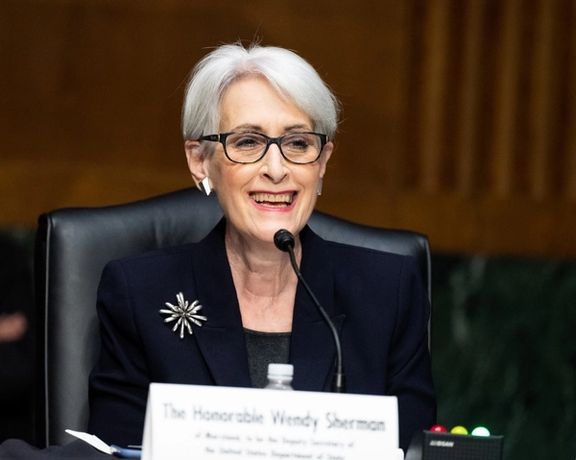
A classified briefing on Iran by senior US officials will take place for all senators Tuesday afternoon, Politico reported, amid rising concerns about Tehran’s actions.

A classified briefing on Iran by senior US officials will take place for all senators Tuesday afternoon, Politico reported, amid rising concerns about Tehran’s actions.
Outgoing Deputy Secretary of State Wendy Sherman, Undersecretary of Defense Colin Kahl, Deputy Director of National Intelligence Morgan Muir, Treasury’s Under Secretary for Terrorism and Financial Intelligence Brian Nelson and Vice Adm. Stephen Koehler, the Joint Staff’s chief of strategy, policy and plans will brief the senators.
Special envoy for Iran Rob Malley will not be among these officials. Politico quoted two sources as saying that Malley is on leave.
Many Iranian Americans have criticized Malley for his alleged desire to forge a new deal with Iran and revive the 2015 nuclear accord, the JCPOA, that former President Donald Trump abandoned. A revival of the agreement would lift key economic sanctions imposed on Iran by the Trump administration.
According to the report, Senate minority leader Mitch McConnel has been demanding the briefing for months and has criticized the Biden administration for allowing threats from Iran to grow.
Politico also quoted a Senate Democratic aide as saying that officials will brief senators on the Iran nuclear talks. The staffer mentioned that there has been progress in the talks.
The Biden administration began indirect talks with Iran more than two years ago to revive the JCPOA but the diplomatic effort reached an impasse last September.
Republicans have long been demanding a more forceful approach by the administration toward Iran, including a vigorous enforcement of key sanctions.

The issue of possible direct talks with the United States occasionally comes up in Iran as Washington has put fresh nuclear talks with Tehran on hold.
The latest mention of the need for direct talks was expressed by international affairs analyst Hassan Beheshtipur in an interview with Entekhab newspaper in Tehran on Monday. Other commentators in Iran urging a resolution to the impasse in the nuclear issue have also occasionally argued in favor of direct negotiations with the US.
Speaking about a report by the Wall Street Journal last week on Europeans probing Washington for fresh talks with Tehran, the analyst said that there is very little European powers can do to press the United States, and direct talks would be the only viable option.
A reformist politician, Esmail Gerami-Moqaddam wrote in Etemad newspaper in Tehran on Wednesday that direct US-Iran talks have the advantage of eliminating mediators. He also expressed doubt about the influence of Europeans on the United States regarding Iran, and insisted that ‘reformists’ in Iran strongly believe in direct negotiations.
Although Iran’s ruler Ali Khamenei has banned direct negotiations with the US since former President Donald Trump withdrew from the JCPOA accord in 2018, Tehran is hard pressed by US sanctions and some wonder it there could be a chance now for direct talks.
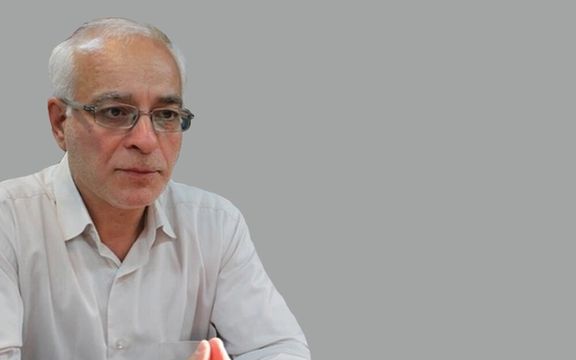
In January 2022, when nuclear negotiators were hard at work in Vienna to revive the JCPOA, Iranian officials and even IRGC-linked media gave signals that direct negotiations might be possible if “a good agreement is at hand.” In other words, Tehran wanted to dangle the prospect to get more concessions from the Biden administration.
An Iranian conservative lawmaker, Gholamreza Nouri, told local media in April 2022 that the Iranian delegation in the Vienna nuclear talks were given the green light to hold direct contacts with their American counterpart, but some hardliners in Tehran prevented the move.
Nouri’s statement could have meant that Khamenei had at some point authorized direct talks, but others, most likely hardliners such as former nuclear negotiator Saeed Jalili with influence on the hardliner government prevented the move.
The Vienna negotiations and efforts to revive the JCPOA lasted 18 months and eventually reached an impasse last September. Since then, the prospects for progress have become less likely for several reasons.
The Wall Street Journal mentioned in its report that the Biden administration cannot decide how to proceed with Iran given the dynamics in US politics, with bipartisan opposition in Congress to relieving Iran from pressure while Tehran has shown no interest in changing its aggressive policies.
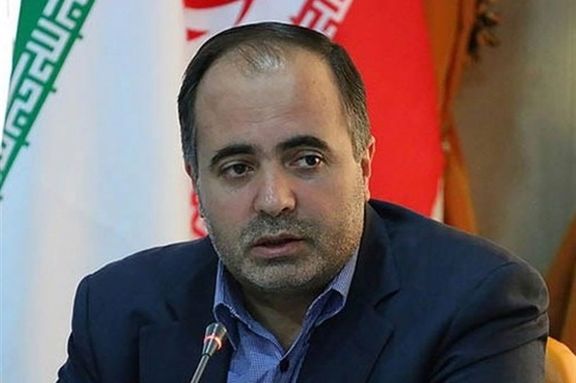
Iran has doubled-down on its support for militant groups for attacking Israel this year, cushioned by an agreement with Saudi Arabia to restore relations after a seven-year hiatus.
Iran’s military support for Russia in Ukraine and the Iranian regime’s brutal crackdown on anti-government protesters have also complicated the prospect of any fresh talks leading to an agreement.
It appears increasingly likely that the Biden administration looks at ways to have a broader agreement with Iran that would stop its regional destabilizing activities.
Iran’s recent deal with Saudi Arabia could be the best test for this objective, but except talk of de-conflicting in Yemen, there is little sign of Tehran willing to give up its campaign against Israel and its pledge to force the US out of the Persian Gulf.
While some speak of a possible interim deal to simply stop Iran’s uranium enrichment to near weapons-grade quality in exchange for partial sanctions relief, Tehran is apparently opposed to the idea.
Esmail Qaani, the commander of Iran’s extraterritorial Quds Force said on Friday that Tehran will support “Palestinian heroes” launching “30 attacks daily” against Israel. “This is the result of the resistance front and the global Islamic mobilization,” by the Islamic Republic.
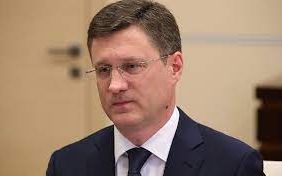
Russian Deputy Prime Minister Alexander Novak will visit the Islamic Republic of Iran on May 16, Iranian local media reported on Sunday.
Novak is expected to meet with Iranian Oil Minister Javad Owji and Central Bank Governor Mohammad-Reza Farzin during his two-day stay in Tehran.
He will also attend the 27th International Oil, Gas and Petrochemical Exhibition opening in Tehran on May 17.
There were no details provided about the Russian delegation or topics of the upcoming agenda.
Iranian Deputy Oil Minister Ahmad Asadzadeh said on April 25 that Novak and Russian Central Bank Governor Elvira Nabiullina will visit Iran in May for trade and economic agreements.
As tension between the United States and Iran have increased since last year, Tehran and Moscow have been trying to boost bilateral relations.
As nuclear talks broke down with Iran last September and Russia's invasion of Ukraine dragged on, the United States and Europe imposed more sanctions on Iranian and Russian entities and the two pariah states expanded their ties.
In July, the National Iranian Oil Company (NIOC) and Russian gas company Gazprom signed a memorandum of understanding (MoU) worth $40 billion. NIOC and Gazprom CEOs signed the deal on the day Russian President Vladimir Putin arrived in Tehran for a summit with his Iranian and Turkish counterparts.
There were many projects covered by the MoU, including expanding the Kish and North Pars gas fields, improving the South Pars field, developing six new oilfields, increasing gas and product swaps, completing various liquefied natural gas (LNG) projects, and building gas export pipelines, to name a few.
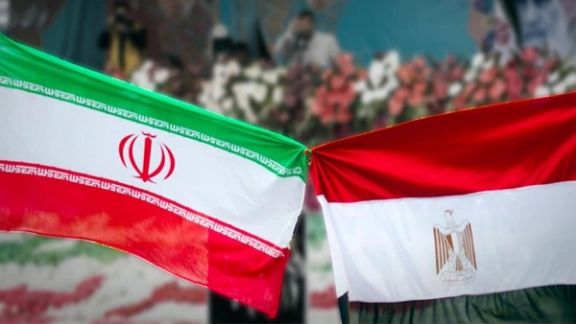
Iran is looking towards mending fences with Egypt in the wake of Tehran signing a China-brokered deal for détente with Saudi Arabia.
Iranian lawmaker Fada-Hossein Maleki, a member of the parliament’s National Security and Foreign Policy committee, said in an interview with Tasnim news agency published Sunday that talks to bolster ties between Iran and Egypt are being held regularly in Iraq.
It comes amid recent reports of Oman hosting Iranian and Egyptian officials for talks.
Maleki said: “Restoring relations between Iran and Egypt is very important... In the near future, bilateral relations will be restored, and we will witness the opening of embassies in both countries.”
Egypt has maintained diplomatic representation in Tehran since the Islamic revolution. However, the countries have only chargés d'affaires running the missions.
Malekei said that after the mooted reestablishment of ties Iranian President Ebrahim Raisi will hold a meeting with his Egyptian counterpart Abdel Fattah El-Sisi.
Also on Sunday, Iranian Foreign Minister Hossein Amir-Abdollahian told IRNA: “We have always welcomed the improvement of relations between Tehran and Cairo.”
Tehran and Cairo’s history of on and off relations predates the establishment of the Islamic Republic. Iran’s relations with Egypt, a close ally of Saudi Arabia and other Persian Gulf nations, have been fraught since the Shah fell in 1979. His subsequent refuge in Egypt, where he died and was buried in 1980, then ruled by President Anwar Sadat, damaged relations.
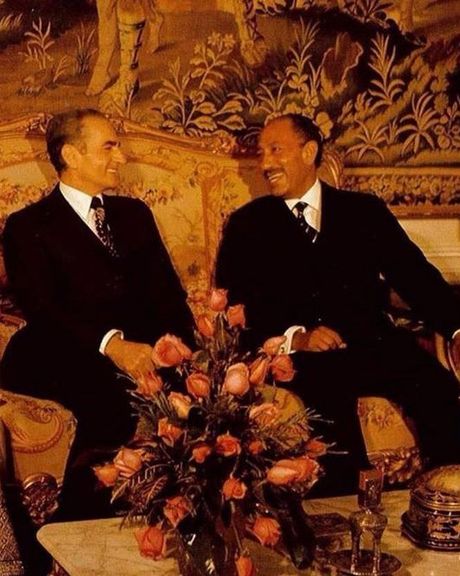
Iran named a street after Khaled Eslamboli, the man who assassinated Sadat because he gave asylum to the Shah. The name was changed following the resumption of ties with Saudi Arabia in anticipation of further extending the regional rapprochement.
Relations improved after President Hosni Mubarak resigned in 2011. In April 2012, Iran appointed an ambassador to Egypt weeks before then-president Mohamed Morsi visited Iran. However, continued tensions between Iran, Saudi Arabia and allied Western nations have long proven to be an obstacle.
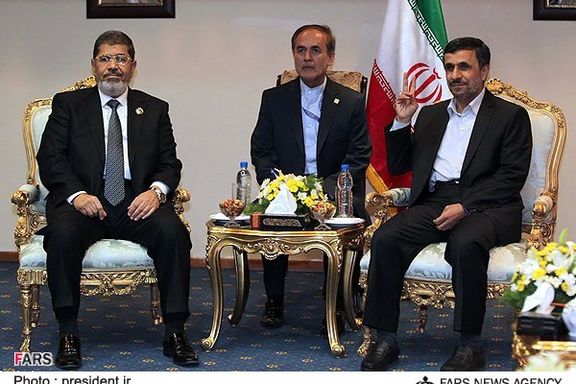
After years of bad relations, Iran and the Kingdom recently reached an agreement to end a seven-year diplomatic rift. Upon the visit of Iran's Minister of Economy to Saudi Arabia, Riyadh on Friday introduced its new ambassador to Tehran.
After Foreign Ministry spokesman Nasser Kanaani welcomed the Tehran-Riyadh détente, he added: “Egypt is an important country and the two countries value each other in the region. The region needs the synergy of Tehran and Cairo.”
In May, Hojjatollah Joudaki, a former Iranian diplomat in Egypt, said Tehran may be replacing idealism with pragmatism to end the long-standing impasse in its foreign policy, noting that a recent trend of changing tens of street names in Tehran could be the first move.
Qatar-affiliated media outlet Al-Arabi Al-Jadeed reported in June that Cairo and Tehran had agreed on “gradual expansion of Tehran-Cairo relations as well as coordination on the situation in the Gaza Strip and Syria.” The London-based pan-Arab daily also reported that Egyptian and Iranian intelligence official held a meeting in which Egypt warned Iran not to target Israelis on its territory.
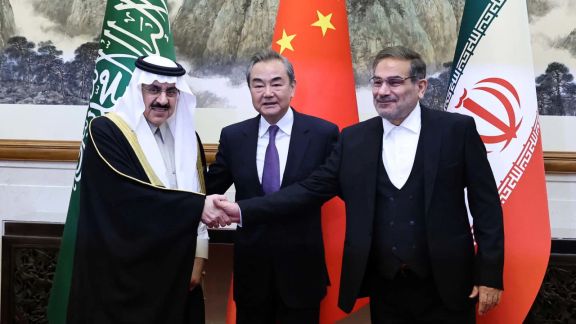

A French citizen released by Iran after three years in jail on trumped-up spying charges is “very weak”, his family have revealed.
President Emmanuel Macron announced on Friday that Benjamin Brière is going free along with fellow Frenchman Bernard Phelan.
The two men are among an unknown numbers of diplomatic hostages held by the regime.
In a statement on Friday, Briere’s family spoke of being able “to hold him in our arms after three years of hell," but added: “He is, however, very weak, physically and morally, a return to normal life will be long and certainly difficult, but now he is in good hands."
A lawyer for Briere said he had become “extremely weak and frail” after a hunger strike, adding: “If the release wouldn’t have happened by now, Benjamin would be at a major life risk.”
Macron tweeted: "We will continue to work towards the return of those of our fellow nationals who are still detained in Iran."
Brière had been held in Iran since May 2020. The traveller and blogger was arrested for allegedly taking photos with a drone in a restricted area near the Turkmenistan-Iran border and sentenced to eight years in jail.
Philippe Valent, his France-based lawyer, called the espionage charges against his client a "fiction" and his trial "a parody staged by the Revolutionary Guard".
Ties between France and Iran have deteriorated in recent months. Tehran had detained seven French nationals in what Paris described as arbitrary arrests equivalent to state hostage-taking.
In the past decade, Iran's Revolutionary Guard have arrested dozens of dual nationals and foreigners, mostly on unproven allegations of espionage and breach of security.
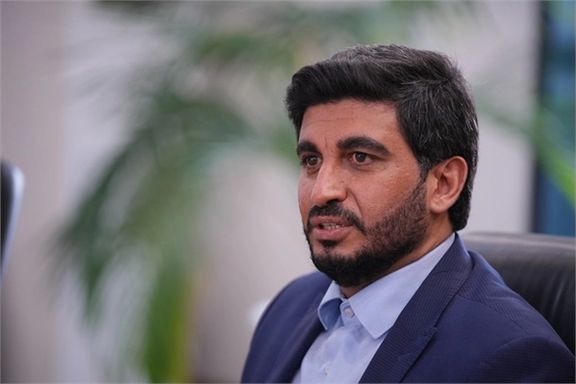
Tehran has refused to comment on the embarrassing revelation that China’s private ports are complying with a ban on Iranian shipping.
Ali Nazi, Deputy Director of Ports and Maritime Organization told ILNA news agency on Saturday that such “information is confidential.”
China has handed over most main ports to the private sector and foreign companies.
These operators do not allow Iranian ships to dock, for fear of being subject to US sanctions.
Iranian shipping can dock in Chinese government-controlled ports, but their inadequate facilities and equipment increase the loading and unloading time, while their locations increase voyage time and lead to higher costs.
China is a diplomatic ally of the Islamic Republic but so far it has avoided openly challenging US sanctions. While Beijing clandestinely imports hundreds of thousands of barrels of crude a day via third party channels, Iran gains little from the trade as intermediaries take most of the profits and often deliver goods instead of cash.
Official figures released by China's Customs show no direct oil purchase from Iran in 2021. But in March Bloomberg claimed that details from third-party sources indicated that Iranian oil was often re-branded as purchases from other countries and such exports had even surged.
The news about China’s compliance with US sanctions will be embarrassing for hardline supporters of Supreme Leader Ali Khamenei who have been trumpeting Iran’s “Looking East” policy.